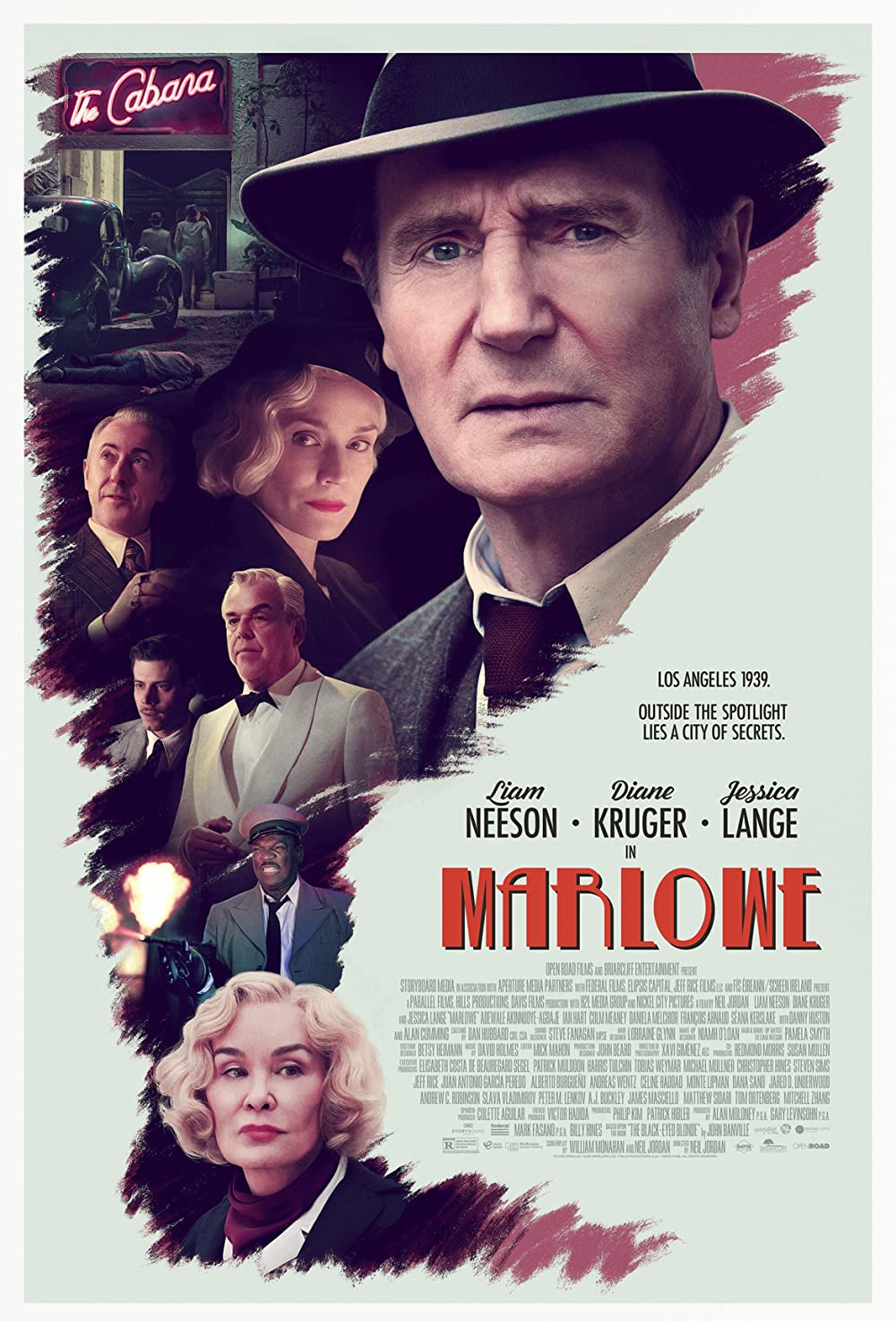Marlowe
Marlowe was influenced by the great noir films like The Big Sleep and The Maltese Falcon. It casts Liam Neeson as Philip Marlowe, the famous detective created by Raymond Chandler. It was written by William Monahan, the Oscar-winning writer of The Departed, and directed by Neil Jordan of The Crying Game and Interview with the Vampire fame. For those reasons, it is logical to expect this movie will be really amazing. And yet, despite some undeniably good qualities, it never quite meets those expectations. Everything feels a notch below where it should be.
The film wastes no time getting started. Marlowe is visited by the beautiful and alluring Clare Cavendish (Diane Kruger). She wants him to find Nico Peterson (François Arnaud), a man she was involved with. Peterson was, however, killed outside a fancy country club recently. Clare doesn't believe this actually happened; she thinks it was staged and that the mangled body belonged to someone else. Marlowe begins poking around, which puts him in the orbit of the club's shady manager (Danny Huston), a gangster (Alan Cumming), and even Clare's veteran movie star mother, Dorothy (Jessica Lange).
Marlowe has all the things you would expect from a film noir: a hardboiled gumshoe protagonist, a femme fatale, a lot of vintage cars and tommy guns, and a plot that can be difficult to follow. (Hey, as great as it is, The Maltese Falcon is infamous for being impossible to completely make sense of.) Several of these elements are quite good. Neeson is well-cast as Marlowe. Aside from the fact that it's nice to see him out of those tired “very particular set of skills” action flicks he's spent the last decade making, the actor does an excellent job conveying the character's seen-it-all attitude, while still making it clear that he cares about this case. He spars appealingly with Huston, works up a bit of chemistry with Kruger, and develops a fiery interplay with Lange. In fact, when those last two are onscreen together, the movie comes fully alive.
The production design is similarly pleasing. Costumes, sets, and locations appear appropriately vintage. Cinematographer Xavi Giménez honors the spirit of classic noir, without feeling the need to be slavish to it. Especially during the third act, there are a couple scenes that break with the traditional look, using colored lights to play up the drama of what's happening. That proves a wise choice, as it adds a mystique to help convey the surprises of the underworld Marlowe finds himself in.
Marlowe's downfall is its plot. The story meanders all over the place, never quite making it clear how the various players and situations fit together. By the end, you're likely to have a question or two left unanswered, as the motives of the principal players remain hazy. Pacing is another issue. A good detective story keeps you on the edge of your seat, eagerly anticipating each new clue. Jordan takes an unusually low-key approach, staging scenes with a leisurely flow that prevents the film from achieving momentum. Lack of juice is an even bigger detriment than the muddled plot is. Overlooking the parts that don't add up would be easier if there was a little snap to the proceedings.
The ingredients are here for a great noir. Marlowe just fails to assemble them as well as it could have. Strong performances and a sleek look make the movie reasonably watchable. At the same time, though, you can't help noticing how much it pales in comparison to the pictures it so desperately wants to emulate.
out of four
Marlowe is rated R for language, violent content, some sexual material, and brief drug use. The running time is 1 hour and 50 minutes.
